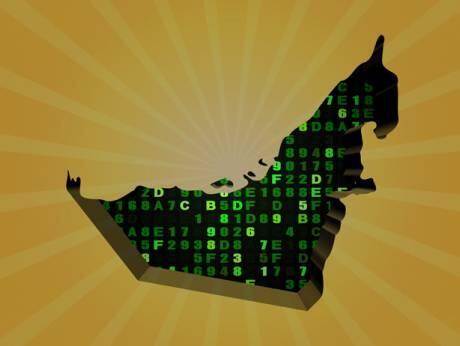In the world we live in, technology takes care of even the simplest of tasks. Many of today’s young tech entrepreneurs want to capitalise on this trend to become the next Elon Musk or Mark Zuckerberg. But for 25-year-old Fariha Khan and her friends, it wasn’t the ambition to make it big that inspired them to build their own app, Heroes of Cancer.
“Cancer is a cause that is close to my heart,” the Bangaldeshi expat tells GN Focus. “My brave and resilient dad fought for eight months, after which we lost him to cancer. It was an incredibly difficult journey that affected us mentally, emotionally and financially.” Each of the app’s co-founders has seen a family member battle the disease and like her friends, Fariha felt a need for an online solution to support cancer patients and their families. The app features medical news, promotes positive thinking and allows users to connect with others in similar situations.
Alive and kicking
The tech start-up culture is alive and thriving in the UAE. For the fourth year in a row, the nation leads the region as a tech start-up hub and is home to one-third of all Middle East and North Africa (Mena) investors, according to The State of Digital Investment in Mena 2013-16 report by Dubai SME released at the ArabNet Digital Summit 2017.
The UAE is home to 19 venture capitalists, the highest in the region. Two start-ups, Careem and Souq.com, are seen as unicorns and are valued at more than $1 billion (Dh3.67 billion).
Deals like these inspire techpreneurs to start their own business in the UAE, whether onshore or in free zones. Several UAE free zones cater to those looking to start tech businesses. Since starting a company from scratch can be daunting, free zones help simplify things by providing help with visas, residence permits, documentation and bank accounts, as well as site visits suited to clients’ requirements. Today, for example, Dubai Internet City is hosting Tecom SME Builder, where experts will talk about what SMEs and entrepreneurs need to know in terms of harnessing business opportunities.
“UAE free zones make it easy to start companies compared to onshore entities,” says Bangaldeshi expat Sajjad Kamal, 28. “Onshore entities have more bureaucracy and more stringent regulatory requirements.” He set up Beneple, an HR platform that automates admin tasks, in the Dubai Multi Commodities Centre free zone. In just eight months, Beneple was acquired by Finsbury Associates, a financial services company. Kamal is now based in Silicon Valley, where his new venture, AlemHealth, allows doctors to make diagnoses through telemedicine.
Risky business
Once they have a plan, entrepreneurs must assess the risks involved. Starting your own tech company can be risky. Indian national Padam Chhabra, a 35-year-old Dubai resident, gave up a comfortable job at Citibank to found the coupon site Clip the Deal at Dubai Silicon Oasis (DSO). “The culture of start-ups is about taking risks and accepting that there could be failure,” he says. Chhabra tells GN Focus how DSO’s concept of “fail fast, fail cheap” helps start-ups realise that failing is just part of the process.
All start-ups must also think about their funding. Influencers.ae is one of several players looking to cash in on the influencer marketing boom. “We were lucky enough to be able to start generating revenue on a very basic prototype, which has played tremendously in our favour with respect to prospective investors as well as provide us immediate market feedback that helped us pivot our engineering focus,” says Canadian national Feras Arafe, 35, Founder and CEO of Influencers.ae.
Before starting out, entrepreneurs need to ensure they can sustain themselves in the business for at least a year. The founders of Clip the Deal, for instance, initially put in their own money and the company bootstrapped for a year. It was only after launch that DSO provided them with seed funding.
A series of events over the year aid aspirants in finding help, whether in terms of finance or advice. This week more than 50 young Arab entrepreneurs will pitch their concepts and products to potential investors and multinationals at Dubai World Trade Centre (DWTC), where the Gulf Information Security Conference (GISEC) and Internet of Things Expo (IoTx) 2017 run until tomorrow.
“Technology is playing a greater role in our lives and the Middle East is home to some of the brightest minds in the sector — the opportunities for entrepreneurial innovators are endless,” says Trixie LohMirmand, Senior Vice President, Exhibitions & Events Management, DWTC.
More famous is the Gitex Start-up movement in Dubai, which brings together more than 400 start-ups and 1,000 entrepreneurs and investors from around the world. “Everybody who is anybody in the world of start-ups and helping them scale is there,” says Michael Champion, Show Director at DWTC. “The tech start-up culture in the UAE is expanding daily as more of the brightest minds identify an opportunity to pitch their innovations to investors with investors now more willing to listen,” he adds.
However, Omar Christidis, ArabNet’s Founder and CEO, says the region still needs better tech talent. “One of the challenges the whole ecosystem and the industry is faced with is technology talent — actual coders, developers, hardcore technical talent,” he says. “We want to see programmes to get the youth learning coding earlier.”
If they hadn’t studied computer science in school, Fariha and her friends may never have developed their app. Ideas like theirs backed with a strong skillset could change the way we use technology today.
Source: http://bit.ly/2qGmevD











